
Ever since sound was initially incorporated into moving pictures, movies and music have gone hand in hand. The impact of a scene can always be increased by choosing the appropriate song at the correct time, regardless of the type of movie—it might be an intense thriller, heartbreaking drama, or hilarious comedy. In addition, a lot of iconic movie songs that were composed or recorded for motion pictures have become hits on their own, surpassing the success of the films that spawned them.
A well-known instance can be found in the 1992 film The Bodyguard. People of all generations are familiar with the film’s hit song, Whitney Houston’s incredible rendition of Dolly Parton’s “I Will Always Love You,” even if not everyone has watched it. The Bee Gees’ biggest successes, “Stayin’ Alive” and “Night Fever,” were from John Travolta‘s 1977 classic disco picture Saturday Night Fever. Let’s face it, not many people have heard of Robert Altman‘s Ready to Wear (the legendary filmmaker of Gosford Park, Nashville, M*A*S*H). However, once Ini Kamoze’s “Here Comes the Hotstepper” plays, you will undoubtedly be singing along to the catchy tunes.
Take a look back at the top 15 Hot 100 songs that became popular after appearing in motion pictures. Only those versions that were first released in tandem with a film or recorded for motion pictures are included in this list. Hence, you won’t find Percy Faith‘s “Theme From A Summer Place” (composer Max Steiner’s version was heard in that 1959 film) or LeAnn Rimes’s “How Do I Live” (Trisha Yearwood sang it in Con Air). Debby Boone’s “You Light Up My Life” (Kasey Cisyk was heard in the film of the same name).
Based on actual performance on the weekly Billboard Hot 100 chart, this ranking was determined. An inverted point system is used to rank the iconic movie songs, with weeks at No. 1 receiving the highest value and weeks at No. 100 receiving the lowest. A few time periods were weighted to take into consideration the variations in turnover rates between those years in order to guarantee that the greatest successes from each era were fairly represented.
Also Read: 10 Most Popular Movie Soundtracks Ever
15. Wiz Khalifa feat. Charlie Puth, “See You Again” in ‘Fast & Furious 7’

In the renowned film series Fast & Furious 7, Wiz Khalifa brought Charlie Puth on board to compose a heartfelt musical ode to Paul Walker’s memory. Walker’s tragic death in a vehicle accident prior to the movie’s conclusion gave the song’s themes of loss and remembering a profound meaning. Fans of the series and those impacted by Walker’s legacy found great resonance in “See You Again,” which came to be seen as a potent symbol of love and nostalgia and one of the most iconic movie songs.
Motivated by an entrancing piano tune, the song connected with listeners worldwide, reaching the top of the Billboard Hot 100 and holding that position for a remarkable twelve weeks. Everlasting friendship and the ageless link of shared memories were themes captured in the poignant lyrics and passionate vocals of Khalifa and Puth. The song’s accompanying music video, which skillfully combined elements from Fast & Furious 7 with other moments, enhanced its effect even further and paid tribute to Walker’s lasting influence on the cherished series.
After reaching the top of the charts, “See You Again” cemented its place in cinematic history by surpassing its initial setting and evolving into an enduring hymn of gratitude and optimism. Its lasting appeal highlights its importance as a poignant remembrance that has touched people all across the world, in addition to being a hit soundtrack with iconic movie songs.
14. Lionel Richie, “Say You, Say Me” in ‘White Nights
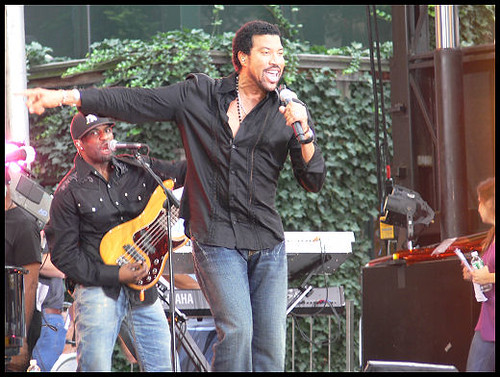
“Say You, Say Me” by Lionel Richie became a breakthrough smash in the history of iconic movie songs when it was used in the Mikhail Baryshnikov and Gregory Hines film White Nights. The song, which won an Oscar, oddly didn’t appear on the movie’s soundtrack, instead appearing as the last track on Richie’s 1986 album Dancing on the Ceiling.
“Say You, Say Me” captured the spirit of reflection and love desire so well that the song became an enormous hit with listeners and topped the Billboard Hot 100 for an amazing four weeks beginning on December 21, 1985. Richie’s soulful voice and its mellow melody captured themes of love, optimism, and the need for connection, transforming it into an enduring classic that went beyond its movie roots as one of the most iconic movie songs.
The song’s success demonstrated its ongoing appeal as a soundtrack hit and as the undisputed hymn of the time. Its Oscar Award recognition brought attention to its cultural influence and cemented its place in the pantheon of iconic movie songs. The song “Say You, Say Me” by Lionel Richie is still a testament to the ability of music to elicit strong feelings and convey the core of a tale, touching listeners of all ages.
Read More: 10 Shortest Feature Movies Ever Made
13. Coolio feat. L.V., “Gangsta’s Paradise” in ‘Dangerous Minds’
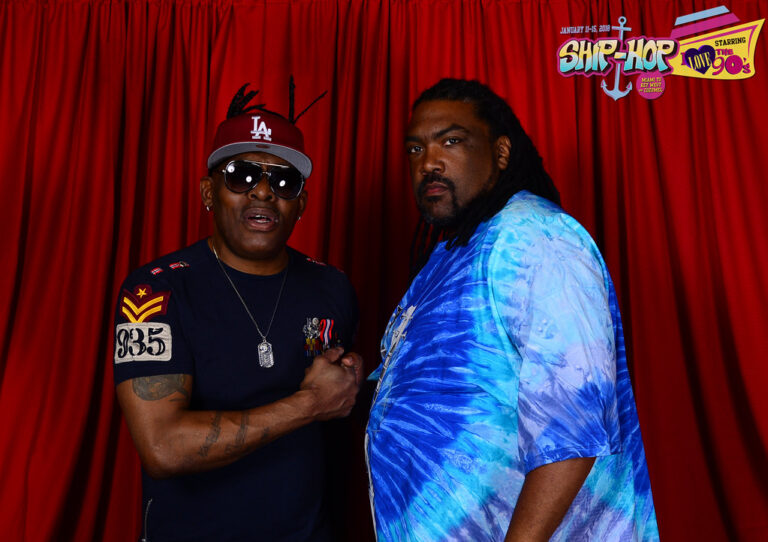
One of the most iconic movie songs of the 1990s is Coolio’s “Gangsta’s Paradise,” which served as the theme song for the inner-city thriller Dangerous Minds. The song, which was influenced by Stevie Wonder’s 1976 smash “Pastime Paradise,” expertly merged rap with moving lyrics about urban life in America.
After making its debut at the top of the Billboard Hot 100 on September 9, 1995, and remaining there for three weeks, “Gangsta’s Paradise” became an international hit as one of the most iconic movie songs. L.V.’s poignant chorus and Coolio’s unvarnished performance combined to craft a gripping story of survival, hardship, and the harsh realities of street life.
The song’s influence went beyond the charts as it received praise from critics and acknowledgment at important award shows. Coolio, L.V., and the late great Stevie Wonder gave a remarkable performance at the Grammys that emphasized its cultural relevance. Not only did “Gangsta’s Paradise” win Best Rap Solo Performance, but it also came to represent musical cooperation and societal criticism.
In addition to paying respect to Wonder’s original composition, Coolio’s rendition of it became a contemporary song that connected with a younger audience. Its lasting influence on culture and ongoing relevance in the music and film industries is demonstrated by its status as one of the most iconic movie songs.
12. Pharrell Williams, “Happy” in ‘Despicable Me 2’
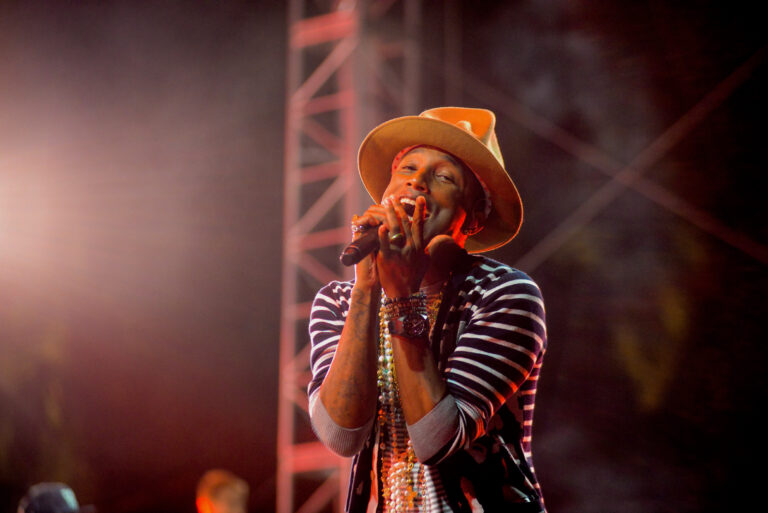
The catchy hit “Happy,” by Pharrell Williams, which made a big appearance in the animated picture Despicable Me 2, went beyond its cinematic roots to become a global phenomenon and one of the most iconic movie songs of the modern era. The cheerful tune and inspirational lyrics of “Happy” made it popular with audiences all around the world, despite its connection to the cartoon world of Gru and Minions.
“Happy” shot to the top of the Billboard Hot 100 within ten weeks of its release on March 8, 2014, after making its debut as the first and only song from the Despicable Me 2 soundtrack. It became a stand-alone smash that won over listeners of all ages, surpassing the success of the movie itself as one of the most iconic movie songs.
With its theme of finding happiness in the little things in life, “Happy” became a radio station and playlist mainstay because to Pharrell Williams’s soulful vocals and catchy beat. Its influence went well beyond the charts, as innumerable covers, dancing moves, and even social media challenges were inspired by it, further cemented its status in popular culture.
“Happy” solidified its place as an everlasting anthem of joy and celebration, elevating Pharrell Williams’s career despite its modest origins on a movie soundtrack. As one of the most cherished and iconic movie songs of the last few years, its legacy lives on, reminding people all throughout the world of the ability of music to inspire and bring people together.
Also Read: How to Learn About the Cold War in Movies
11. Post Malone & Swae Lee, “Sunflower” in ‘Spider-Man: Into the Spider-Verse’

“Sunflower,” a song by Post Malone and Swae Lee that was heavily used in the animated superhero movie Spider-Man: Into the Spider-Verse, has become one of the most iconic movie songs of the past few years. The movie itself was highly praised for its inventive animation and gripping plot, and “Sunflower” provided a musical element that enthralled viewers.
“Sunflower” made its debut as a crucial song on the film’s soundtrack and swiftly shot to the top of the Billboard Hot 100, which was a noteworthy accomplishment for both musicians. On January 19, 2019, the song’s dominance at the top began, showcasing its alluring combination of musical appeal and memorable melodies.
After experiencing initial success, “Sunflower” kept up its stellar performance on the charts, spending more than a year creating waves and garnering praise for having the longest-ever top 10 run in the chart’s history when it was released in 2018. The combination of Post Malone and Swae Lee struck a profound chord with listeners, encapsulating the spirit of adolescent exuberance and emotional depth that paralleled the film’s themes of self-discovery and heroism.
The song’s lasting appeal went much beyond its connection to Spider-Man; it became a universal hymn that went beyond its cinematic beginnings to become one of the most iconic movie songs. “Sunflower” has cemented its status as a contemporary classic among great cinema songs, serving as a testament to the ability of music to improve storytelling and convey a range of emotions.
10. Bee Gees, “Stayin’ Alive” in ‘Saturday Night Fever’
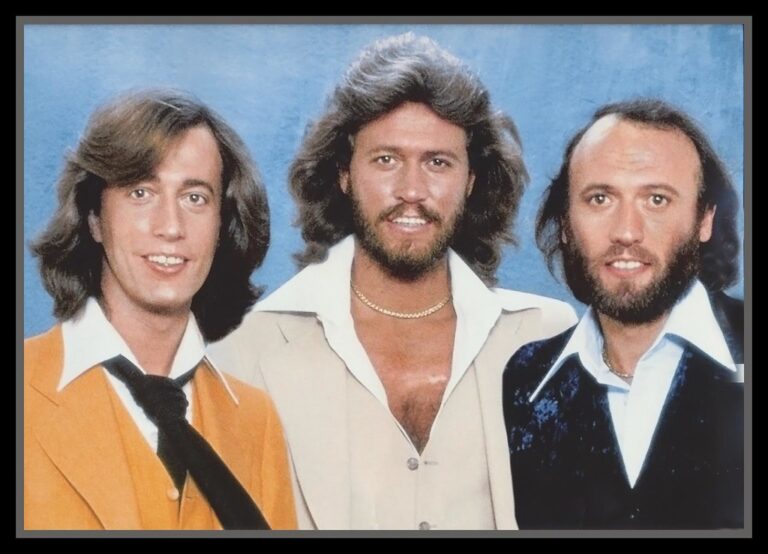
One of the best examples of iconic movie songs that epitomize a time period is The Bee Gees’ “Stayin’ Alive,” which became legendary during the disco era and was immortalized in the movie Saturday Night Fever. The song, which was released during the height of disco’s appeal, became synonymous with John Travolta’s legendary portrayal of Tony Manero on the dance floor because to its catchy beat, groovy guitar riffs, and characteristic falsetto vocals.
“Stayin’ Alive” became a worldwide sensation after making its debut at number one on the Billboard Hot 100 and holding that position for an amazing four weeks beginning on February 4, 1978. The song’s lyrical message of survival and resilience in urban settings, coupled with its pulsating beat, struck a deep chord with viewers, going beyond its film roots to become a cultural icon.
Beyond its unprecedented popularity on the charts, “Stayin’ Alive” has an interesting correlation with practical use. The beat of the song is renowned for matching the pace at which chest compressions should be given during CPR, thus paramedics and other medical personnel are prompted to remember it when performing life-saving measures.
In addition to elevating Saturday Night Fever to legendary status, The Bee Gees’ contribution to the movie cemented “Stayin’ Alive” as a disco hit with timeless appeal as one of the most iconic movie songs. Its impact goes well beyond the year of its original release, as evidenced by the innumerable tributes, covers, and cultural allusions that highlight its enduring significance in the annals of popular music and cinema.
Also Read: 10 Best Amazon Prime Movies You Forgot About
9. Blondie, “Call Me” in ‘American Gigolo’
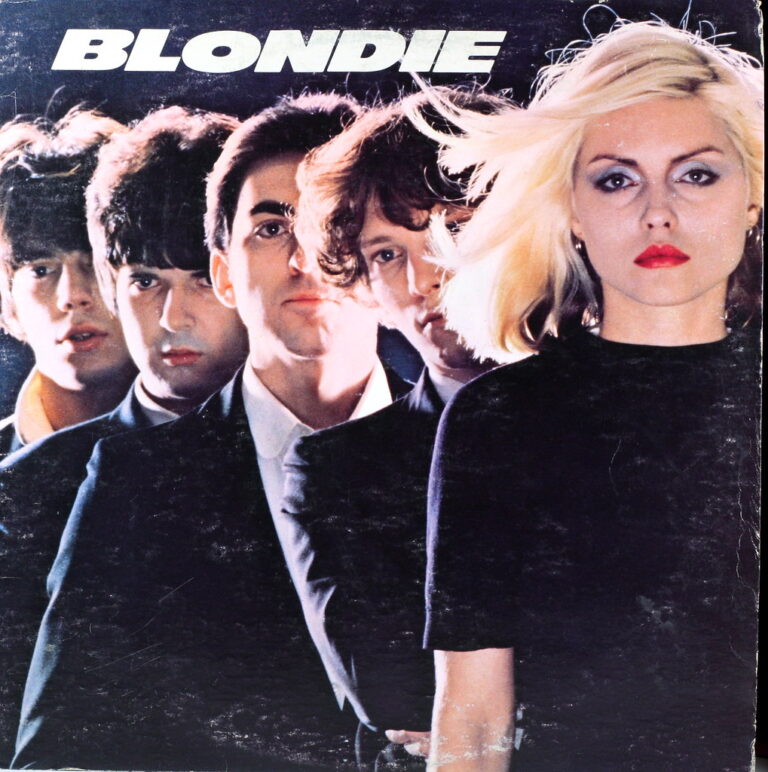
The movie American Gigolo, which featured Blondie’s “Call Me,” perfectly captures the spirit of iconic movie songs that identify a certain period. The song was originally intended for the movie’s soundtrack by Giorgio Moroder, who first tried to work with Stevie Nicks. Debbie Harry of Blondie was the ideal fit for the tune. Inspired by the first scene in the movie, which shows Richard Gere driving around California in a convertible, Harry wrote the song in a matter of hours.
On April 19, 1980, “Call Me” made its debut as a theme that aptly embodied the film’s themes of independence and allure. It quickly rose to the top of the Billboard Hot 100, where it stayed for an amazing six weeks. Debbie Harry’s seductive voice and the song’s throbbing pace perfectly captured the era’s urban cool and refinement.
“Call Me” became a cultural phenomenon after reaching the top of the charts. It fit in well with the story of the movie as well as the larger musical environment of the day. Its blend of new wave and rock gave American Gigolo‘s examination of identity and desire a suitable setting, making it a lasting symbol of pop culture from the 1980s.
Blondie’s partnership with Giorgio Moroder highlighted the song’s ongoing appeal and impact while also cementing Blondie’s legacy in music history. “Call Me” is still a popular example of a iconic movie songs and a testament to the ability of music to improve cinematic storytelling and generate a feeling of location and time.
8. Boyz II Men, “End of the Road” in ‘Boomerang’
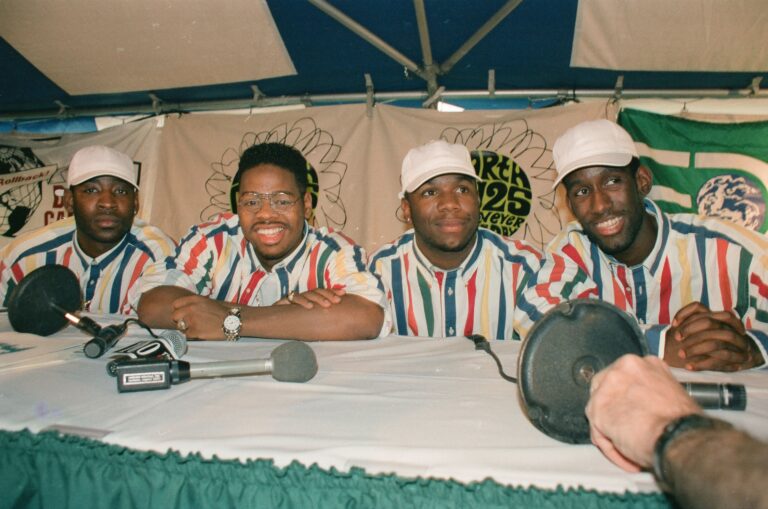
Boyz II Men’s “End of the Road,” which was featured in the romantic comedy Boomerang starring Eddie Murphy, is a prime example of iconic movie songs that appeal to all age groups. Composed especially for the movie by the well-known group of Kenneth “Babyface” Edmonds, L.A. Reid, and Daryl Simmons, the song masterfully captured themes of emotional vulnerability and heartbreak.
“End of the Road” made its debut as a crucial track on the Boomerang soundtrack and swiftly shot to the top of the Billboard Hot 100, where it stayed for an incredible 13 weeks beginning on August 15, 1992. It is an everlasting song of love and loss because of its moving lyrics and soulful harmonies, which connected with listeners on a universal level.
Boyz II Men’s reputation as vocal powerhouses in the R&B genre was cemented when “End of the Road” went beyond its chart-topping success to become a cultural phenomenon and one of the most iconic movie songs. Due to the song’s capacity to arouse strong feelings and strike a chord with listeners, it was praised and recognized, cemented in music history.
Even after it topped the charts, the song’s reputation remained strong since it helped launch Boyz II Men’s remarkable career and had a lasting impact on popular culture. “End of the Road” is still a classic example of how music elevates film narrative; it leaves a lasting impression that goes beyond its Boomerang roots to become one of the iconic movie songs of all time.
7. Whitney Houston, “I Will Always Love You” in ‘The Bodyguard’
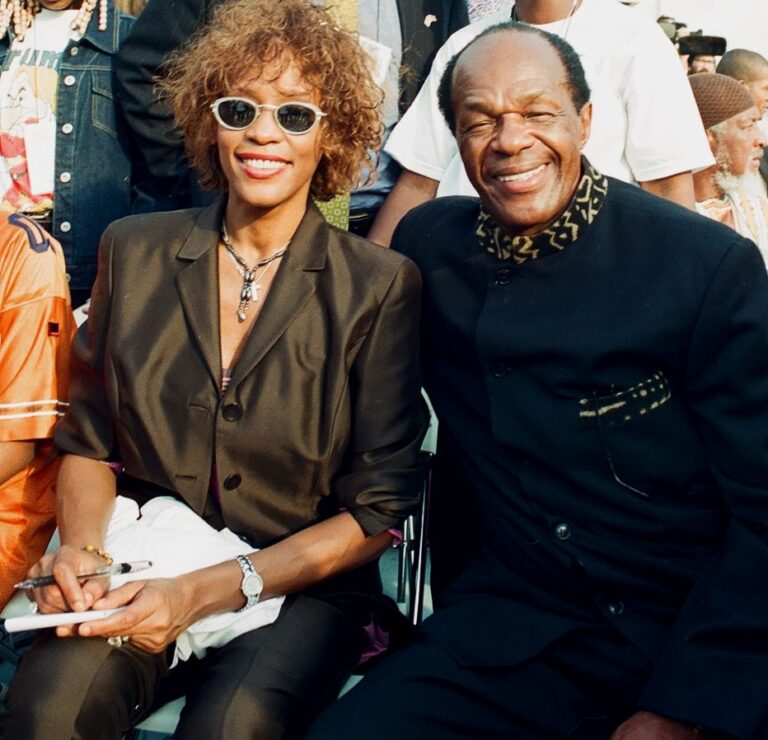
Whitney Houston’s performance of “I Will Always Love You,” which is a standout song in the drama The Bodyguard, perfectly captures the spirit of timeless movie tunes. The song, which was first written by Dolly Parton in 1973, gained newfound notoriety in 1992 when Kevin Costner included Linda Ronstadt’s 1975 rendition of Houston on the movie’s soundtrack.
Houston’s rendition of the song, which made its debut as a melancholic ballad in The Bodyguard, was a hit with listeners all over the world and perfectly captured the feelings of love, longing, and parting. Starting on November 28, 1992, the song shot to the top of the Billboard Hot 100, where it stayed for an amazing 14 weeks. Due to its poignant delivery and Houston’s extraordinary singing ability, it became an immediate classic and became her undisputed hallmark song and one of the most iconic movie songs.
“I Will Always Love You” became a cultural sensation after reaching the top of the charts and surpassing its film beginnings as an enduring hymn of love and devotion. Houston cemented her place as one of the greatest vocalists of all time with her interpretation, which demonstrated her ability to put emotion into every note.
The song’s influence went well beyond its first release, solidifying its position in music history and inspiring a plethora of tributes and covers. “I Will Always Love You” is a classic example of iconic movie songs that have a lasting impact on popular culture, and it continues to be a tribute to the everlasting power of music to inspire profound emotions and engage with people.
Read More: 5 Movies Like Twilight for Fantasy Lovers
6. Bee Gees, “Night Fever” in ‘Saturday Night Fever’
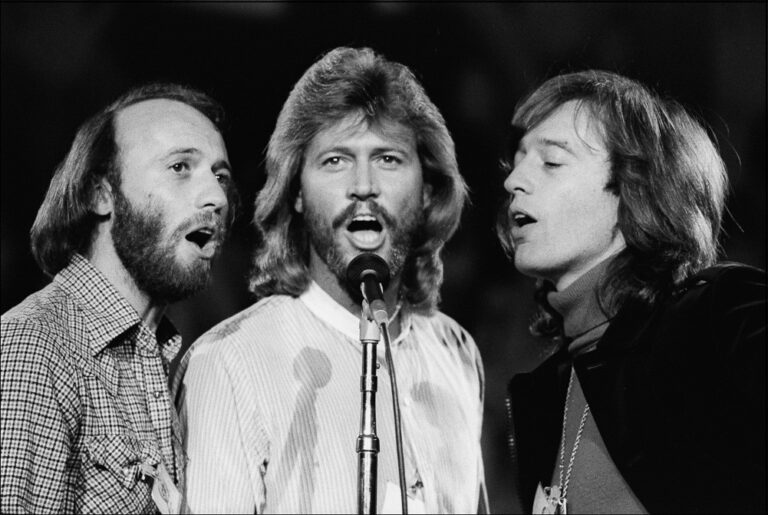
The Bee Gees’ classic disco hit “Night Fever,” which is featured in the beloved movie Saturday Night Fever, is a prime example of the marriage of music and cinema that creates iconic movie songs. The Bee Gees first objected to have their song renamed to correspond with the movie’s title, citing the overabundance of “Saturday” in song titles at the time. Producer Robert Stigwood had originally asked them to contribute to the soundtrack.
Stigwood’s brilliant move to combine the song’s title with the movie’s original title—despite the Bee Gees’ initial resistance—led to the movie’s renaming as Saturday Night Fever, cemented the band’s influence on popular culture and the disco era.
“Night Fever” made its soundtrack debut as the main tune of Saturday Night Fever and enthralled fans with its catchy beat and falsetto harmonies. On the Billboard Hot 100, it rose to the top and remained there for eight weeks beginning on March 18, 1978. Its throbbing beat and stirring lyrics encapsulated the hedonistic vibe of the time, making it a symbol of nightlife and exhilaration on the dance floor.
Beyond its chart-topping triumph, Saturday Night Fever became a cultural sensation as “Night Fever” came to represent the film’s vision of urban life and self-discovery. The Bee Gees’ contribution not only helped to define a musical era but also made a lasting impression on film, cementing their status as disco pioneers and making their song one of the most iconic movie songs ever.
5. Irene Cara, “Flashdance… What a Feeling” in ‘Flashdance’
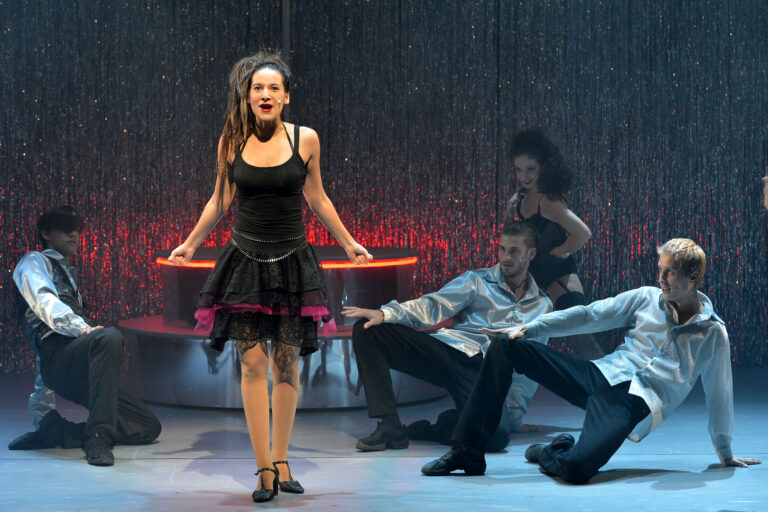
The movie Flashdance featured Irene Cara’s song “Flashdance… What a Feeling,” which is a prime example of a memorable movie song that embodies both accomplishment and aspiration. Giorgio Moroder co-wrote the song, which is crucial to the plot when it comes to Jennifer Beals’ character, Alex, trying out for a prominent dance conservatory. The song’s transition from a moving ballad to a fast-paced pop anthem captures the attention of both moviegoers and movie characters alike, reflecting Alex’s journey from insecurity to confidence.
“Flashdance… What a Feeling” made its debut as the soundtrack’s title tune and swiftly shot to the top of the Billboard Hot 100, where it stayed for six weeks beginning on May 28, 1983. It became an anthem of empowerment and tenacity due to its catchy tune, inspirational words, and Irene Cara’s strong vocals.
In addition to reaching the top of the charts, “Flashdance… What a Feeling” received positive reviews and was nominated for a Golden Globe and an Oscar for Best Original Song, cementing its position as one of the most iconic movie songs. Its acknowledgment brought to light the song’s enduring cultural significance and its capacity to go beyond its film roots.
In addition to advancing Irene Cara’s career, Flashdance cemented the song’s status as a timeless symbol of aspiration and success in popular culture. Still resonating with audiences as a classic example of iconic movie songs that define an era, “Flashdance… What a Feeling” is a monument to the ability of music to uplift and inspire.
Also Read: 10 Stylish Female Movie Characters I’d Absolutely Swap Closets With
4. Survivor, “Eye of the Tiger” in ‘Rocky III’
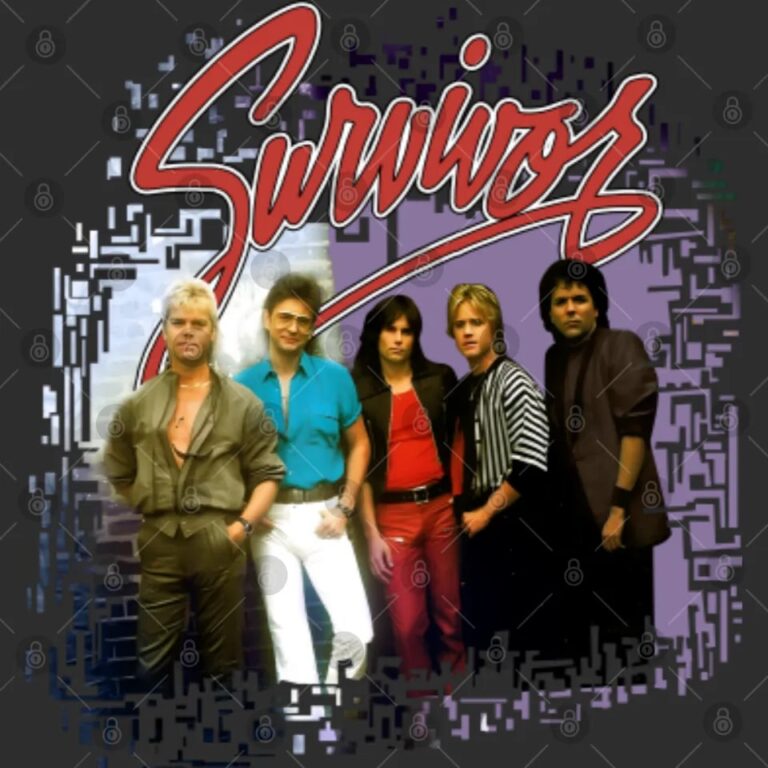
“Eye of the Tiger,” a popular song from Survivor that starred in Rocky III, is a timeless anthem of perseverance and victory, representative of iconic movie songs that appeal to audiences of all ages. The song was written by Jim Peterik and Frankie Sullivan with the original idea for the film’s crucial training montage in mind. They carefully timed the guitar and drum hits to perfectly match Sylvester Stallone’s portrayal of Rocky Balboa’s intense training regimen.
“Eye of the Tiger” made its debut as a cornerstone of the Rocky III soundtrack and quickly shot to the top of the Billboard Hot 100, where it stayed for an amazing six weeks beginning on July 24, 1982. Its inspiring lyrics, throbbing beat, and powerful guitar riffs encapsulated the spirit of resiliency and endurance, making it an anthem of empowerment for both sportsmen and spectators.
Beyond its unprecedented popularity, “Eye of the Tiger” came to symbolize the unwavering spirit of the Rocky film franchise and Sylvester Stallone’s legendary portrayal of the underdog fighter. The song’s influence went beyond its initial release, as it cemented Survivor’s status in popular culture and brought the show praise and exposure.
In addition to catapulting the band to international stardom, Survivor’s contribution to Rocky III made “Eye of the Tiger” a timeless classic among iconic movie songs. Its lasting appeal is a monument to the ability of music to inspire and energize people despite adversity. It never fails to uplift and motivate listeners.
3. Bee Gees, “How Deep Is Your Love” in ‘Saturday Night Fever’
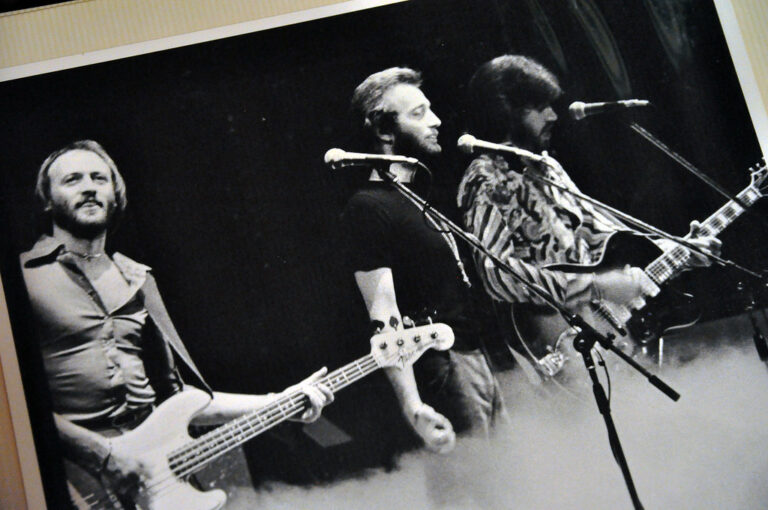
Showing off their flexibility as songwriters, The Bee Gees’ “How Deep Is Your Love,” which was featured heavily in the legendary film Saturday Night Fever, is a tribute to iconic movie songs that cut across genres. The Bee Gees’ ballad demonstrated their ability to write both dance floor favorites and emotional, introspective tunes, despite their reputation for disco smashes.
“How Deep Is Your Love” shot to the top of the Billboard Hot 100 within three weeks after making its debut as one of the most iconic movie songs on the Saturday Night Fever soundtrack. It became one of the Bee Gees’ greatest hits and a timeless love song of the time due to its melodic beauty, poignant lyrics, and trademark harmonies.
In addition to reaching the top of the charts, “How Deep Is Your Love” became a cultural icon, perfectly capturing the sentimental themes and rich emotional range of Saturday Night Fever. Because of the song’s ongoing appeal, it has cemented its position in music history and established the Bee Gees’ legacy as forerunners of both disco and classic ballads.
In addition to improving the soundtrack of the movie, The Bee Gees’ contribution to Saturday Night Fever demonstrated their creative breadth and capacity to elicit strong feelings in listeners. As a moving reminder of the strength of love and the enduring appeal of the Bee Gees’ musical creativity, “How Deep Is Your Love” is still regarded as a classic among iconic movie songs.
Read More: 6 Most Memorable Improvised Movie Scenes
2. Bryan Adams, “(Everything I Do) I Do It for You” in ‘Robin Hood: Prince of Thieves’

Bryan Adams’s “(Everything I Do) I Do It for You,” which appears in Robin Hood: Prince of Thieves, is a quintessential example of iconic movie songs that have a profound emotional impact on viewers all around the world. This stirring ballad by the Canadian rock artist gave the traditional English story of Robin Hood a new level of emotional relevance and depth.
“(Everything I Do) I Do It for You” made its debut as the lead song on the soundtrack of Robin Hood: Prince of Thieves and quickly shot to the top of the Billboard Hot 100, where it stayed for an amazing seven weeks beginning on July 27, 1991. Bryan Adams’s soulful vocals, poignant words, and moving tune perfectly captured the essence of love, loyalty, and sacrifice, making it a hymn of devotion that went beyond its film roots.
“(Everything I Do) I Do It for You” became Bryan Adams’s hallmark song and a cultural phenomenon in addition to its chart-topping success. Its timeless appeal and global themes made it a powerful hit and cemented its status as one of the all-time great power ballads in music history.
The song’s influence lasted long after it was first released, garnering praise from critics and multiple honors, including nominations for Grammys. In addition to improving the soundtrack, Bryan Adams’s work on the movie made a lasting impression on popular culture and demonstrated the persistent ability of music to improve cinematic storytelling.
Among iconic movie songs, “(Everything I Do) I Do It for You” is still a beloved classic that never fails to stir up feelings and uplift viewers with its enduring message of love and devotion as one of the most iconic movie songs.
1. Diana Ross & Lionel Richie, “Endless Love” in ‘Endless Love’ – Iconic Movie Songs
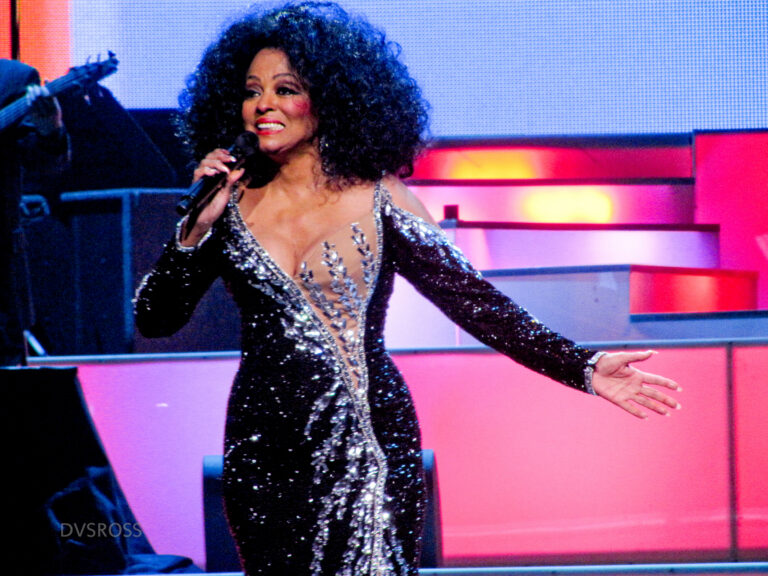
One of the enduring examples of iconic movie songs that define a period is “Endless Love,” by Diana Ross and Lionel Richie, which was included in the romance drama Endless Love starring Brooke Shields. Together, these iconic vocalists created the greatest duet hit in history, which Billboard lauded as a testament to their unmatched vocal connection and emotional depth.
“Endless Love” made its debut on August 15, 1981, as the title tune of the Endless Love soundtrack. It shot to the top of the Billboard Hot 100 very rapidly, and it stayed there for an amazing nine weeks. It is an anthem for romantics everywhere because of its soul-stirring melody, meaningful lyrics, and Diana Ross and Lionel Richie’s blending vocals, which perfectly conveyed the idea of enduring love and passion.
“Endless Love” not only reached the top of the charts but also became a cultural phenomenon, cemented its status as the greatest single of both Diana Ross’s and Lionel Richie’s remarkable careers. The song’s ongoing appeal with listeners led to critical acclaim and its widespread use as a mainstay at romantic events like weddings across the globe.
Together, Diana Ross and Lionel Richie’s rendition of “Endless Love” enhanced the movie’s soundtrack while showcasing their musical talents and capacity to arouse strong feelings in listeners. With its enduring message of love and loyalty, the song continues to be a beloved classic among iconic movie songs, inspiring and enthralling listeners.
More About:Movies
